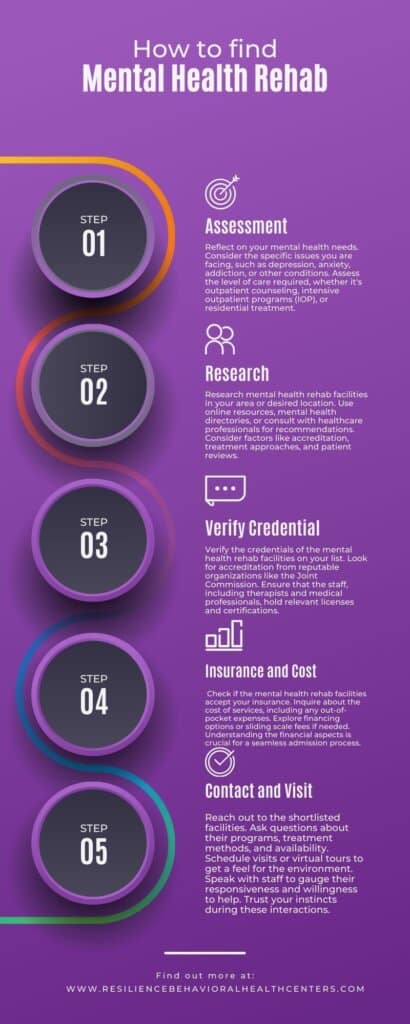Navigating Mental Health Rehab: A Comprehensive Guide
About one-third (32.3%) of the U.S. population reported symptoms of anxiety/depression in early 2023. In Massachusetts, the number is slightly lower with 30.8% of adults reporting symptoms of a mental health disorder, which necessitates some form of rehab.
But a silver lining within this sad reality is that you’re not alone! If you’re facing a similar challenge, and feel that navigating rehab can be a daunting task, we got you covered.
What is Mental Health Rehab?
Mental health rehab, also known as psychiatric rehabilitation, is a type of treatment that helps people recover from mental illnesses and disorders.
It provides a safe and supportive environment where individuals can learn how to manage their symptoms, develop coping mechanisms, and improve their overall well-being.
Who Needs Mental Health Rehab?
We know that people with a mental health disorder should go to rehab. But, how do you really know if someone needs a rehab? A mental health rehab is particularly helpful for individuals who:
- Have tried other forms of treatment, such as therapy or medication, without significant relief.
- Have a co-occurring substance abuse disorder.
- Are experiencing a mental health crisis or are at risk of self-harm or suicide.
- Are evidently struggling with symptoms that point to a mental health disorder such as difficulty concentrating or communication blocks.
What to Expect During Mental Health Rehab in Massachusetts
There are various treatment programs offered at a mental health rehab which include inpatient, outpatient, PHP, IOP, and day treatment. These programs will include different therapies such as:
- Individual therapy: This involves meeting with a therapist one-on-one to discuss your symptoms, challenges, and goals.
- Group therapy: This allows you to connect with other people who are going through similar experiences and share support and encouragement.
- Medication management: If medication is part of your treatment plan, a psychiatrist will help you manage your medications and ensure they are working effectively.
- Evidence-based treatment: These methodologies have years of proven results and include therapies such as CBT, DBT, EMDR, MBSR, and more.
- Life skills training: This can help you learn how to manage your daily life, including cooking, cleaning, and budgeting.
- Recreational therapy: Activities like yoga, art therapy, and music therapy can help you relax, reduce stress, and improve your overall well-being.

How To Find A Mental Health Rehab Facility
There are a few factors to consider before choosing a facility such as your needs, location, ratings, accreditations, affordability, etc. However, here are some resources that can help narrow down your explorations:
- The Massachusetts Substance Use Helpline: 1-800-327-5050
- SAMHSA National Helpline: 1-800-662-HELP (4357)
- The Massachusetts Behavioral Health Help Line (BHHL): 833-773-2445
- The NAMI COMPASS helpline: 1-800-370-9085
- The National Alliance on Mental Illness (NAMI) Massachusetts: 617-723-9900
- The Massachusetts Association for Mental Health (MAMI): 617-248-3325
- Massachusetts Network of Care
If you’re considering visiting a rehab facility, Resilience Behavioral Health can help streamline your research. Here are a few recommendations to give you a push start in your findings for mental health rehab in Massachusetts.

